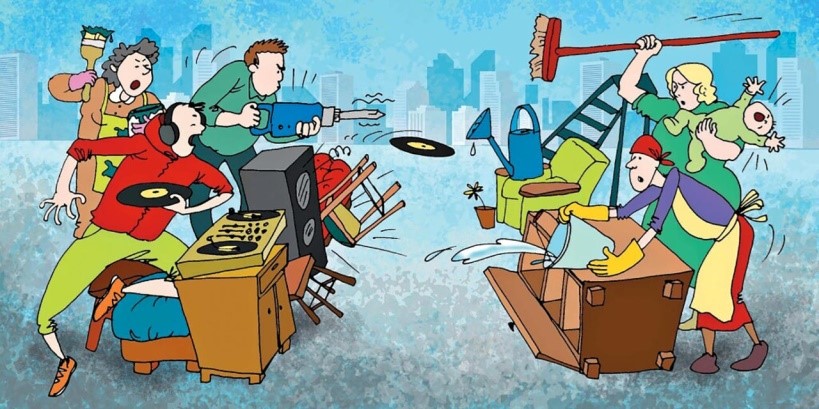- Main page ·
- Area of work ·
- Success stories ·
- Resolving a conflict between two neighbors
Resolving a conflict between two neighbors

Aibek is 27 years old, he is single and lives with his father. As his neighbors describe him: the guy grew up without any restrictions and follows his own rules of life. He likes to put on loud music in his backyard and play tennis with his friends. His neighbor Taalai is 48 years old, he has a daughter who has cerebral palsy, and he suffers from hypertension.
One day, when Aibek was also playing loud music and playing with friends outside, Taalai asked him to turn down the music and reminded him that it wasn’t the first time he was asking for it. Aibek rudely replied that he knows how he should behave, got angry and started a fight. As a result, Taalai received bodily injuries and was taken to the hospital.
The next day, realizing what had happened, Aibek admitted that he was wrong and went to apologize to his neighbor’s home. However, the neighbor's relatives did not want to talk to him and informed him that they would contact law enforcement agencies to stop his actions. Aibek realized the seriousness of the situation, because his biography will be spoiled by conflicts and registration in law enforcement agencies. He applied to the local Mediation Service center to resolve the conflict and settle the situation. During the negotiations conducted by the mediator, the parties came to reconciliation, Taalai did not file a complaint to law enforcement agencies, and Aibek undertook to take into account the wishes of his neighbors and the public order.
During the period of implementation of the Yntymaktuu Zhashoo (Living in Peace) project, 25 Mediation Service centers were opened in the Kyrgyz Republic by the National Mediation Center. During the year, the residents of the country used the free help of mediators in resolving conflicts.
The goal of the Yntymaktuu Zhashoo project is to create a platform to support proactive youth, civil society and local self-government bodies in the prevention of social conflicts, as well as provide training in mediation skills in 25 selected locations. The program is implemented by International Alert together with the National Mediation Center and the Development Policy Institute with the support of the European Union.

